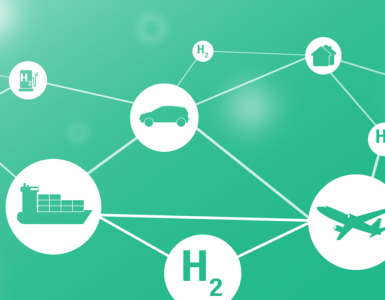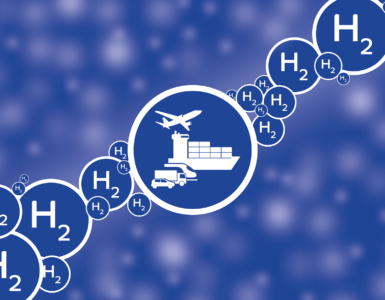Google wants more restrictive green hydrogen rules.
As the multi-year discussion over “green” hydrogen rules continues in Brussels, the US tech giant Google, leading an alliance of several major companies, has called for more restrictions on what can constitute green hydrogen, countering those who seek looser rules.
Hydrogen, an important vector of energy, can be produced using coal, gas, or electricity. The climate-neutral and desirable kind is produced using renewable electricity, creating “green” hydrogen. The European Commission is currently in the process of designing the specific ruleset.
A letter signed by Google, the renewable energy giant Iberdrola, Wind Europe and others, said:
🔥 What about we co-host a webinar? Let's educate, captivate, and convert the hydrogen economy!
Hydrogen Central is the global go-to online magazine for the hydrogen economy, we can help you host impactful webinars that become a global reference on your topic and are an evergreen source of leads. Click here to request more details
We write today as companies committed to advancing your goals to make Europe the first climate neutral continent by 2050.
Their letter dived straight into the protracted discussion over the specificities of so-called “additionality” rules, which the EU executive was tasked with developing in 2018.
Lawmakers in Europe are wary that existing renewables will be cannibalised for hydrogen production, making hydrogen a zero-sum game. To countervail this, EU parliamentarians wanted to tie the desired “green” label to “additional” renewable energy installations.
The Google-led coalition, however, called on the Commission to stick to the original approach.
“We therefore urge the European Commission to adopt an ambitious Delegated Act on Renewable Fuels of Non-Biological Origin (RFNBOs) [largely hydrogen] as soon as possible,” the letter said.
It argued that restrictive criteria are needed to “ensure that renewable hydrogen delivers emissions reductions”.
On temporal correlation, Google insists on hourly matching electrolysers to renewables “after a phase-in period.”
Regarding geographic correlation, electrolysers and electricity production should be located “in the same bidding zone, or else in neighbouring bidding zones”, provided that sufficient cross-border transmission capacity exists. Should a country have multiple bidding zones, its borders would suffice.
Citing increasing electricity demand, the letter said that “the Delegated Act should require hydrogen production to support the development of additional renewable energy capacity on European electricity grids”.
This puts them in the camp of the more restrictive faction, who argue that hydrogen needs to be chained tightly.
Other stakeholders instead argue for fewer restrictions. Previously, Berlin sent a secret letter to the Commission asking for looser restrictions. Paris sent one too, urging the EU executive to make space for nuclear electricity.
Those arguing for fewer restrictions caution that market ramp-up needs space.
The Google-Iberdrola coalition instead says the EU is well placed to set global standards, shaping the trajectory of the hydrogen industry “not just in Europe but around the world”.
“The United States, for example, will soon develop its own standards and strong standards in Europe will ensure the United States follows suit,” the coalition highlighted.
READ the latest news shaping the hydrogen market at Hydrogen Central
Google wants more restrictive ‘green’ hydrogen rules, November 3, 2022








